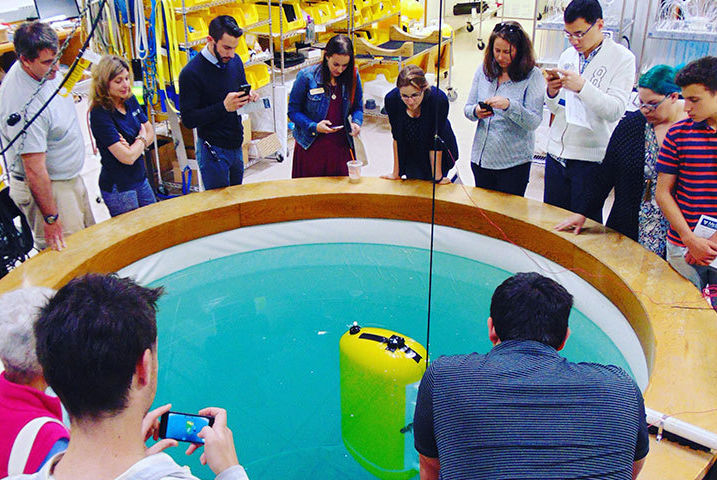STEM In The Community
A Local STEM Company Charts a Global Course

With the Atlantic Ocean surrounding us, and the world-renowned Woods Hole Oceanographic Institution on our shores, you’ve probably always known there’s plenty of ocean research to delve into on the Cape and Islands.
But have you ever thought about what tools researchers use to explore the ocean scientifically?
Special instruments are needed, for example, to measure the exact temperature of the ocean at a specific depth, or to study a particular algae.
We think it’s exciting that these instruments are designed and made here on Cape Cod at McLane Research Laboratories Inc. in East Falmouth.
While McLane is a local STEM business, serving our local scientific community, the company is truly international. In fact, McLane instruments have been deployed worldwide in some of the most remote oceans on earth. Which also means they have customers all over the world.
“We are an export-driven company,” says McLane’s owner, Dr. Yuki Honjo. The Small Business Administration recently selected McLane as the 2017 Exporter of the Year for the Commonwealth of Massachusetts.
“We are proud to be local,” says Honjo, “but we know it’s important to maintain an outward facing view.”
That “outward view” in turn, helps McLane stay on top of the instrument-making game. The company uses what it learns from scientists, engineers, and researchers in the field to customize and perfect their products.
Samplers and profilers are two important kinds of devices McLane makes. Samplers are used to collect water along with whatever other materials scientists are interested in, like sediment, phytoplankton, or algae. Profilers measure the water column in a specific location to allow for the study of changes over time.
McLane works directly with researchers to manufacture and modify products to meet their needs precisely. The company also produces a line of glass and steel flotation to deploy their instruments. Often, after making a device using this one-on-one approach for a specific project, the device can be modified to be used in different ways for other projects.
McLane shares an array of papers and data collected from their devices on the company’s website. Dr. Honjo invites students and ocean enthusiasts alike to go online to see the data and learn how these instruments work.
“There is science at our doorstep,” she says, “and I want all the kids and teachers of our community to be able to access it.”
Visit the McLane library on the company’s website to explore the data gathered by their instruments.